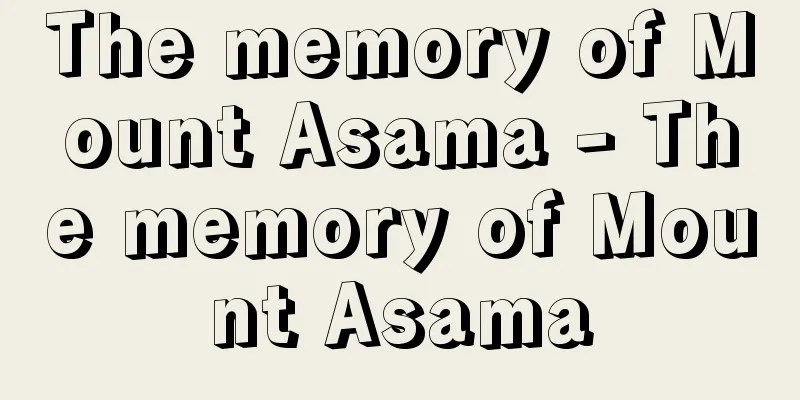One house in front

|
〘Noun〙 In the Edo period, a farming family was the unit of a village. A farmer who owned a fairly large house, estate, and fields within the village and was obligated to pay taxes and other duties. Yakuya (taxpayer) . Honyaku (taxpayer) . As the number of households increased, the half tax and quarter tax were differentiated. *Hondo rice field average land allocation register (Nagaoka Domain) - October 1810 (Bunka 7) "Ippondo, one house in front, Zennosuke, half house in front, Ryonosuke" Source: The Selected Edition of the Japanese Language Dictionary About the Selected Edition of the Japanese Language Dictionary Information |
|
〘名〙 江戸時代、村落の構成単位となる農家。村内に相当規模の家、屋敷と田畑を持ち、年貢、諸役を負担する義務を持つ農民。役家(やくや)。本役(ほんやく)。戸数の増すに従って半役・四半役が分化した。※本途田地平均地割帳(長岡藩)‐文化七年(1810)一〇月「一本途 壱軒前 善之丞 半軒前 亮之助」
出典 精選版 日本国語大辞典精選版 日本国語大辞典について 情報 |
Recommend
Achilles (insect) - Achilles
... Their main habitat is the vast tropical rainf...
Captain John Smith
… [The era of military conquest and armed resista...
Enhanced oil recovery
...For this reason, gas injection is not as widel...
Fan net - Ougiaami
〘Noun〙 A net that opens in the shape of a fan. A t...
piles
…In the West, Saint Fiacre of France is famous as...
Himehajime - Himehajime
One of the calendar notes written in the calendar ...
Iyemon
A cat living in Miyazu City, Kyoto Prefecture. The...
Schwab, G.
…Born in Tübingen, he studied law and literature ...
Toxodon
…Together with the gliding reptiles, thunder rept...
Trap-door spider - Totategumo (English spelling)
This is a general term for spiders that live main...
Eiffel - Eiffel (English spelling) Alexandre Gustave Eiffel
French engineer. Born in Dijon. After graduating ...
Traveling country - Traveling country
A group of nomads in northern Asia. A word found i...
Keihin Industrial Area
It is one of the four major industrial zones that...
Port of Kitakyushu
A port in Fukuoka Prefecture. Located at the north...
air shower
…Nuclear cascades usually develop into complex sh...









